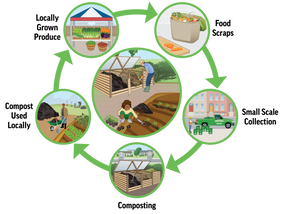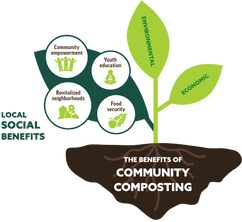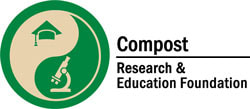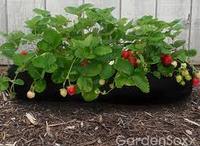December 2023: EPA, USDA, and FDA announce steps to reduce waste and increase recycling of organics
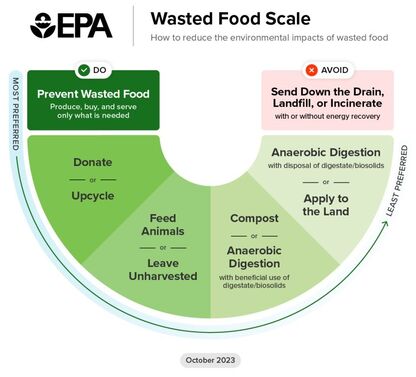
These proposed steps will reduce climate pollution, save families and businesses money, and support a circular economy for all. The U.S. Environmental Protection Agency (EPA), the U.S. Department of Agriculture (USDA), and the U.S. Food and Drug Administration (FDA) released the “Draft National Strategy for Reducing Food Loss and Waste and Recycling Organics” . The draft strategy outlines specific EPA, USDA, and FDA actions to prevent the loss and waste of food and other organic wastes, reducing associated environmental impacts such as methane pollution, a potent contributor to climate change with 28 times more warming potential than carbon dioxide.
The release of this draft national strategy for food loss and waste is an important step forward in this effort to protect people and the planet,” said EPA Administrator Regan. “Reducing food loss and waste is one of the most impactful actions we can take to reduce climate pollution and build a circular economy. Working together with our partners at USDA and FDA, we will take actions to significantly reduce waste and the pollution that comes with it while improving our food system and boosting the economy.”
The release of this draft national strategy for food loss and waste is an important step forward in this effort to protect people and the planet,” said EPA Administrator Regan. “Reducing food loss and waste is one of the most impactful actions we can take to reduce climate pollution and build a circular economy. Working together with our partners at USDA and FDA, we will take actions to significantly reduce waste and the pollution that comes with it while improving our food system and boosting the economy.”
|
LINK HERE FOR NEW EPA COMMUNITY COMPOSTING BASICS AND BENEFITS:
Community composting sites are local and often dispersed throughout a town, city, or neighborhood. |
Exploring Food Loss from Farm-to-Retail in the Produce Industry
Travis Minor, Claudia Hitaj, Fred Kuchler, Sharon Raszap Skorbiansky, Brian Roe, and Suzanne Thornsbury
While much of the established literature on food loss in the United States focuses on food retailers and consumers (Buzby, Wells, and Hyman, 2014), understanding of farm-to-retail food loss is more limited. In December 2017, the USDA Economic Research Service (ERS) hosted a workshop titled “Farm-to-Retail Food Loss in Produce: An Exploratory Discussion of the Causes and Economic Drivers of Change.” The focus was on identifying knowledge gaps and discussing underlying economic drivers and mitigators of food loss at earlier stages of the supply chain. This article summarizes the insights and lessons learned from that full-day workshop. Furthermore, we highlight topics where economists might contribute to a growing area of inquiry and illustrate the complexity and interrelated impacts of actions suggested to reduce food loss and waste (FLW). Continue reading
Travis Minor, Claudia Hitaj, Fred Kuchler, Sharon Raszap Skorbiansky, Brian Roe, and Suzanne Thornsbury
While much of the established literature on food loss in the United States focuses on food retailers and consumers (Buzby, Wells, and Hyman, 2014), understanding of farm-to-retail food loss is more limited. In December 2017, the USDA Economic Research Service (ERS) hosted a workshop titled “Farm-to-Retail Food Loss in Produce: An Exploratory Discussion of the Causes and Economic Drivers of Change.” The focus was on identifying knowledge gaps and discussing underlying economic drivers and mitigators of food loss at earlier stages of the supply chain. This article summarizes the insights and lessons learned from that full-day workshop. Furthermore, we highlight topics where economists might contribute to a growing area of inquiry and illustrate the complexity and interrelated impacts of actions suggested to reduce food loss and waste (FLW). Continue reading
How we can combat climate change
Last year’s report from the Intergovernmental Panel on Climate Change sounded the alarm: The world has until 2030 to implement “rapid and far-reaching” changes to our energy, infrastructure and industrial systems to avoid 2 degrees Celsius of warming, which could be catastrophic. But the scale of the challenge can appear so overwhelming that it’s hard to know where to start. The Post asked activists, politicians and researchers for climate policy ideas that offer hope. Radical change from one state, or even the whole United States, won’t address climate change on its own, but taking these actions could help start the planet down a path toward a better future.
To continue reading, click here
Last year’s report from the Intergovernmental Panel on Climate Change sounded the alarm: The world has until 2030 to implement “rapid and far-reaching” changes to our energy, infrastructure and industrial systems to avoid 2 degrees Celsius of warming, which could be catastrophic. But the scale of the challenge can appear so overwhelming that it’s hard to know where to start. The Post asked activists, politicians and researchers for climate policy ideas that offer hope. Radical change from one state, or even the whole United States, won’t address climate change on its own, but taking these actions could help start the planet down a path toward a better future.
To continue reading, click here
Harvard Law Report: Food Waste Reduction Ripe For 2018 Farm Bill
According to a report published by the Harvard Law School Food Law and Policy Clinic (FLPC), the U.S. spends US$218 billion annually to grow, handle, deliver, and dispose of food that is never eaten. Moreover, 40 percent of food produced in the U.S. is thrown away. This discarded food would be enough to feed the one in seven Americans who are food insecure. The report entitled Opportunities to Reduce Food Waste in the 2018 Farm Bill is part of a joint project between the FLPC, ReFED, and Food Policy Action.
Click here to read the entire article.
According to a report published by the Harvard Law School Food Law and Policy Clinic (FLPC), the U.S. spends US$218 billion annually to grow, handle, deliver, and dispose of food that is never eaten. Moreover, 40 percent of food produced in the U.S. is thrown away. This discarded food would be enough to feed the one in seven Americans who are food insecure. The report entitled Opportunities to Reduce Food Waste in the 2018 Farm Bill is part of a joint project between the FLPC, ReFED, and Food Policy Action.
Click here to read the entire article.
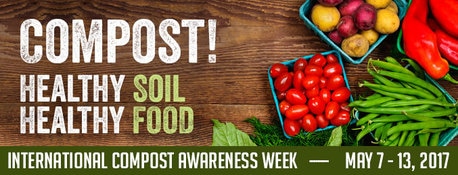
International Composting Awareness - May 7-13, 2017 Compost - The Soil and Water Connection
Keep America Beautiful has 2017 International Compost Awareness Week posters for any environmental celebrations you are holding between mid-April and May 14, 2016. T-shirts also available, go to www.compostingcouncil.org/publications. ICAW is a multi-media publicity and education event that showcases composting and compost products. It features composting in your back yard or at large scale commercial composting facilities.
Keep America Beautiful has 2017 International Compost Awareness Week posters for any environmental celebrations you are holding between mid-April and May 14, 2016. T-shirts also available, go to www.compostingcouncil.org/publications. ICAW is a multi-media publicity and education event that showcases composting and compost products. It features composting in your back yard or at large scale commercial composting facilities.
Across the United States and around the world, composting advocates will be encouraging everyone to compost during ICAW, May 7 – 13, 2017. Those who believe in the “Compost Message” will be planning events in their community to promote the value of compost. All types of composting events — from “do it yourself” composting in your backyard to large-scale community-wide composting — are be promoted during the week. The theme for 2017 is Compost! Healthy Soil, Healthy Food, which opens up lots of opportunities for planning fun and educational activities. CLICK HERE FOR MORE INFO.
Check out this trailer, The Compost Story, that kicks off INTERNATIONAL COMPOST WEEK.
Here is the link to the trailer plus other listed story chapters: https://www.youtube.com/watch?v=qg-IOoatIvo
*********************
Attached for your information and please feel free to share is a guide from USDA on potential Funding opportunities for food waste reduction projects from USDA.
*********************
The U.S. Environmental Protection Agency, the U.S. Department of Agriculture, and the University of Arkansas collaborated to create the guide for students and school personnel to learn about the amount of food wasted in their cafeterias. This guide outlines why and how to do a food waste audit, what to do with the data collected, and lists a number of wasted food prevention ideas.
We are happy to share the recently posted Guide to Conducting Student Food Waste Audits: A Resource for Schools.
Thank you for your continued efforts to reduce wasted food, save money and conserve resources.
Check out this trailer, The Compost Story, that kicks off INTERNATIONAL COMPOST WEEK.
Here is the link to the trailer plus other listed story chapters: https://www.youtube.com/watch?v=qg-IOoatIvo
*********************
Attached for your information and please feel free to share is a guide from USDA on potential Funding opportunities for food waste reduction projects from USDA.
*********************
The U.S. Environmental Protection Agency, the U.S. Department of Agriculture, and the University of Arkansas collaborated to create the guide for students and school personnel to learn about the amount of food wasted in their cafeterias. This guide outlines why and how to do a food waste audit, what to do with the data collected, and lists a number of wasted food prevention ideas.
We are happy to share the recently posted Guide to Conducting Student Food Waste Audits: A Resource for Schools.
Thank you for your continued efforts to reduce wasted food, save money and conserve resources.

EPA has a free, new resource to reduce food and packaging waste! The Reducing Wasted Food & Packaging Toolkit helps restaurants, grocers, caterers, and other commercial kitchens to save money and reduce their environmental impact. We encourage you to explore the toolkit and share extensively with those in your food services network.
5 Ideas To Reduce Residential Food Waste: Check out this blog to find new ways of reducing waste. Click here.
U.S. Composting Council Activities
For the past 14 years ICAW has grown in both strength and numbers of celebrants through its sponsors and compost advocates. Compost Awareness Week serves the important role of bringing the Compost! message to the attention of the public, businesses and other groups. Communities and government agencies, as well as members of the composting industry, utilize the week to promote their specific Compost! message and programs. We are on FACEBOOK!
Find out more here.
Find out more here.
Composting & Organic Association of Missouri

The Composting and Organics Association of Missouri is a non-profit corporation of public and private organizations and individuals dedicated to increasing the quality, value and usage of recycled organics in Missouri by providing education, information and resources and promoting activities and legislation that build healthy soils, benefit people and minimize negative environmental impacts. Find out more here.
NWRA Releases White Paper on the State of Organics Recovery
The National Waste & Recycling Association (NWRA) has released a free white paper on the State of Organics Recovery.Most Americans are not aware of the fact that organic waste is the largest portion of waste stream by weight. Yet because of this fact, organics recovery is increasingly seen as an option for increasing recovery of materials in the waste stream. Read full story
The National Waste & Recycling Association (NWRA) has released a free white paper on the State of Organics Recovery.Most Americans are not aware of the fact that organic waste is the largest portion of waste stream by weight. Yet because of this fact, organics recovery is increasingly seen as an option for increasing recovery of materials in the waste stream. Read full story
Curb to Compost Toolkit
How to include food scrap collection in an existing yard debris program If your community is considering expanding your recycling program to include organics, a great resource is the Curb to Compost Toolkit from the US Composting Council. EPA WARM Tool - Version 14, Update released March 2016
This version of WARM contains a new material management pathway and revisions to existing numbers and methodology. EPA added energy and emission for anaerobic digestion of organic materials, including food waste, yard trimmings, and mixed organics. These emission factors include: • the energy and emissions associated with transporting materials, • operating the digester, • avoided utility emissions from biogas combustion, • avoided fertilizer application and • fugitive emissions and soil carbon storage resulting from application of digestate to agricultural soils. The anaerobic digestion pathway in WARM includes options for the user to model both a wet and dry digester system. WARM also allows the user to model application of digestate to agricultural soils with and without curing. Additionally, EPA revised the method for calculating energy and emissions from transportation of materials to landfills, combustors, composting facilities, and anaerobic digesters. Each of these pathways how use a consistent source for transportation impacts per mile and ton of waste transportation. To read go to: https://www.epa.gov/warm/versions-waste-reduction-model-warm#WARM Tool V14 
The Benefits for Using Compost
•One-third of the world’s arable land has been lost to soil erosion and continues to be lost at an alarming rate (Zang and Wang, 2006) •In the U.S., 99 million acres (28% of all cropland) are eroding above soil tolerance rates, meaning the long-term productivity of the soil cannot be maintained and new soil is not adequately replacing lost soil (NRCS, 2007) •Erosion reduces the ability of soil to store water and support plant growth. •Amending soil with compost improves soil quality and structure, increases water retention, reduces chemical needs, and cuts nonpoint source pollution. •local and state government can set specific food waste recovery goals, and they can tie their composting goals to soil health, watershed preservation, climate protection, waste reduction goals, and local economic development. Take time to look at this webinar about “Save the Food” - an EPA and NRDC national public service ad campaign in partnership with the Ad Council. This campaign assets are FREE so most recently they have been working with City of San Diego and Burbank Recycle Center to put their ads on their waste trucks, billboards and bus shelters. They even resized and customized the ads by adding their logos. Additionally, they have been hosting webinars that go a bit more in depth on all the creative assets available so that more partners can not only learn about the campaign but also leverage the ad for free. The campaign assets, which include pre-written social media content, are available to download here. |
Find a Local Composting CompanySt. Louis Composting
As any seasoned gardener or landscaper knows, the most important thing you can do to enhance a lawn or garden is to cultivate better soil. And the single best way to do that is to condition your soil with compost, one of the finest organic supplements known to humankind. For nearly two decades, St. Louis Composting has been the region’s leading producer of nature’s ultimate renewable resource. We supply hobbyists and professionals alike with top quality compost, topsoil and soil blends and a variety of mulches while simultaneously reducing landfill waste across the metro area.
Find out more here. 
Missouri Organic
In 2014 Missouri Organic diverted over 32 million pounds of food waste from Kansas City… That’s enough to cover 15 football fields a foot deep. MO Organic's FRED (Food Residual Environmental Diversion) program collects food waste from businesses like grocery stores and schools and composts it. This program reduces the amount of food waste going into our landfills and recycle valuable organic resources into Nature Wise Compost.
Hansen's Tree Service
Jeff Hansen started the business in 1988. Since then, Hansen's Tree Service has grown to processes wood and green waste for six metropolitan cities in eastern Missouri, including the city of O'Fallon, Wentzville, Warrenton, Wright City, Lake Saint Louis and Branson. Try their Magic Bean Compost! See more 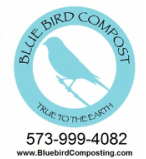
Bluebird Composting
Bluebird Composting recycles millions of pounds of food waste into compost each year. They run a vermiculture operation and create Bluebird Premium Blend Organic Compost. State Of Composting in Missouri
•16 composting facilities •Employ over 200 employees in the state of Missouri •Payroll of over $4.5 million annually •Composted over 120,000,000 pounds of food waste in 2010 •Collected and processed 550,000 cubic yards of yard waste in 2010 •Total equipment capital expenditures is over $25 million •Sell the following in finished products: Compost – over 225,000 cubic yards Mulch – over 500,000 cubic yards Soil Blends – over 145,000 cubic yards (2010 COAM Survey) |
